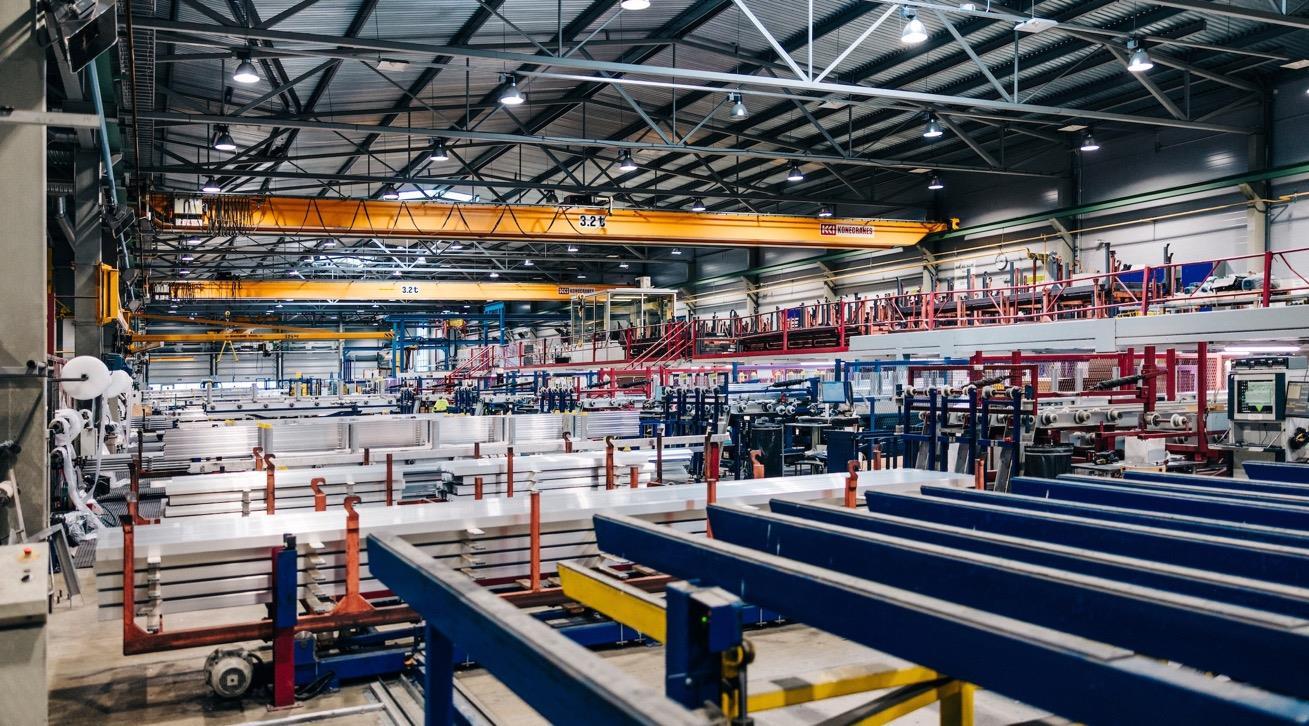

Corporate Responsibility Report 2024



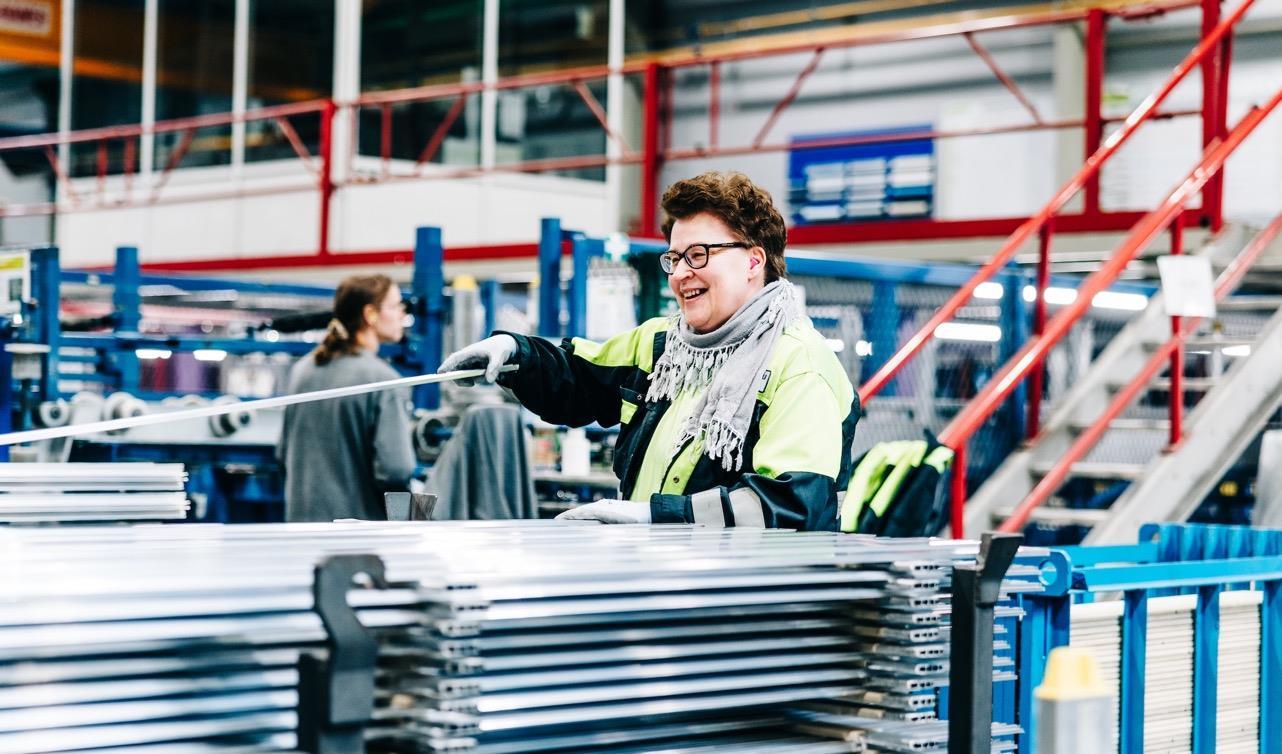

Responsibility is about going beyond compliance
The opposite of irresponsibility is not responsibility, but compliance.
Responsibility means setting your own goals for action when minimum standards are not enough to achieve the best impact for people or the environment. The real responsibility for the future starts where the requirements based on general capability end.
This is why responsible action is never easy, but it is always rewarding. It means challenging the status quo, but being able to create something new. It requires tolerating the risk of failure, but gives you the opportunity to succeed in new ways.
As owners and employees of Mäkelä Alu, we are committed to this kind of responsibility. Not just for ourselves or our customers, but for the future.
Towards a better tomorrow,
Petri Mäkelä Chairman of the Board
Building a sustainable future
At Mäkelä Alu, responsibility is deeply rooted in everything we do. It covers actions on environmental, economic and social issues. These principles have guided us from the very beginning.
For us, responsibility is not just a word, it’s the daily, concrete actions we take to make it a reality – every day. Our corporate strategy, values, management system principles and ethical guidelines guide our day-to-day responsibility work.

Key objectives of our sustainability work
Safety: We protect people, property and the environment.
Staff wellbeing and skills: We develop management skills and promote local prosperity.
Environmental friendliness: We reduce the environmental impact of our production and internal transport and fight climate change.
Honest and reliable business: We also maintain high standards with our partners.

A family business with over 85 years of experience
At the age of 20, Fredrik “Reeti” Mäkelä made his dream come true and founded a sheet metal shop in Luoma-aho, Alajärvi in 1937. In the early years of the company, the business focused on the manufacture of stove coverings and various types of tinplate dishes.
The world changed, and by the time the company was taken over by Reeti’s firstborn Esko in the 1970s, the company had already started manufacturing tin roof profiles. But the biggest change was yet to come.
During the war, shortages of materials and labour forced innovation and production was often reoriented. Already in the 1950s, Reeti foresaw that tinplate would be replaced by a higher quality material. A material that would come to define the future of the company.
The company has evolved and grown over the decades. We have always invested in the skills of our staff, and their wellbeing is well looked after. The Board is currently chaired by Esko’s son Petri Mäkelä.
During a company visit in Norway in the early 1980s, Esko visited an aluminium extruding facility. Slowly, his interest towards extruding aluminium grew, and Mäkelä Alu started manufacturing aluminium profiles at the beginning of the 1990s.
Modern 2020s extrusion plant
Our aluminium profile production has the lowest emissions in Europe. We are constantly renewing and improving our production to become more environmentally friendly, without compromising quality, efficiency, or safety.
In addition to profile production, we offer our customers a comprehensive service. Our services include surface treatment, design, storage, and transport solutions for aluminium profiles. The goal is always to find a solution that will meet the customer’s needs and achieve the best and most cost-effective result.
Our factory and offices are located in Luomaaho, Alajärvi. We also have a branch in Voikkaa, Kuusankoski in Kouvola, and a subsidiary in Sweden.

Our high-bay warehouse is fully automated.
Our vision and mission
Mäkelä Alu Oy is a pioneer in the aluminum industry, where the past is respected but the future is boldly envisioned.
Our mission
Our vision Planet. People. Profile. Together for the Planet’s Best.
Curious and responsible trailblazer
– life must have a profile.
Our values
Let's do as agreed. We challenge tomorrow. We succeed together. Responsibility is action.
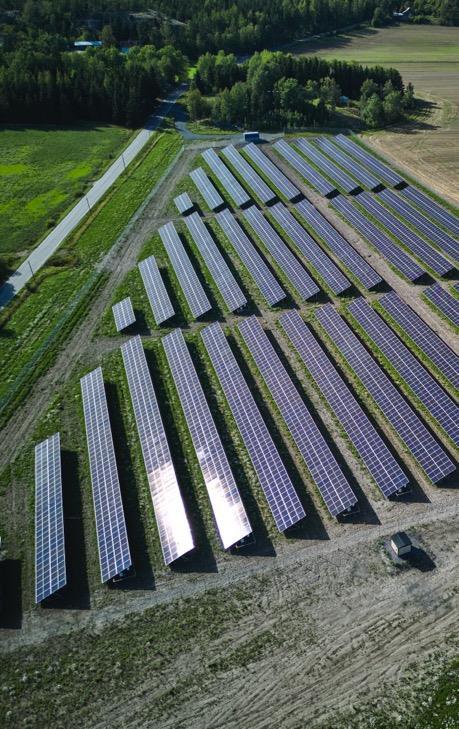
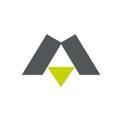
Photo:
Ownership:
240 Personnel:
Aluminium produced:
15,100 tonnes
M€

The principles that guide our work
Our work is guided by key international frameworks, which include:
▪ UN Sustainable Development Goals
▪ UN Guiding Principles on Business and Human Rights
▪ ILO Declaration on Fundamental Principles and Rights at Work
▪ Energy Efficiency Agreements implementing the EU Energy Efficiency Directive

Our work is also guided by our own internal guidelines and objectives
▪ Our strategy
▪ Our company values
▪ Code of Conduct
▪ Responsibility requirements for suppliers
▪ Carbon neutrality target for 2025 for our own production and internal transport
▪ Guidelines and commonly agreed practices
Photo: Tapio Niemi
The standards that guide our work
▪ ISO 14001:2015
Standard for environmental management systems
▪ ISO 9001:2015
Standard for quality management systems
▪ ISO 45001:2018
Standard for occupational health and safety management
▪ EN 15088:2006
Standard for aluminium and aluminium alloys and technical conditions for the delivery of products used in construction works


▪ GSB Standard and Master Certificates
All our powder-coating paint shops are GSBcertified
▪ MED D and MED B certificates
Our operations are MED-certified. MED (Marine Equipment Directive) is a European Union directive that, among other things, promotes safety at sea and prevents marine pollution.
We also comply with a number of other standards, including those relating to aluminium testing methods and the various stages of production.


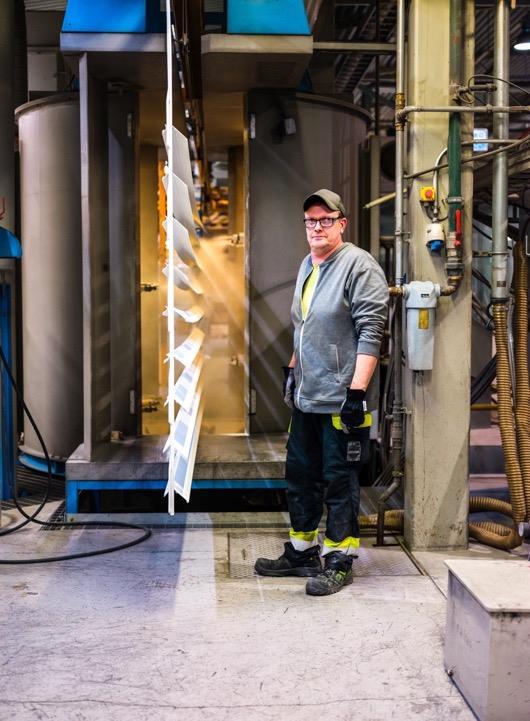
As
a
company, we are committed to the UN Sustainable Development Goals
The UN Sustainable Development Goals (SDGs) define policies for a better tomorrow.




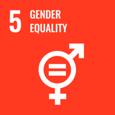
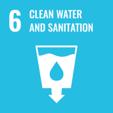

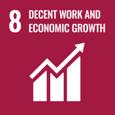
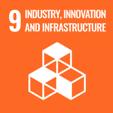




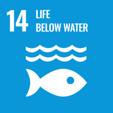



Of these, we have identified the four most central goals for us.
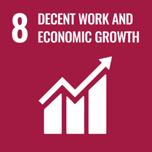
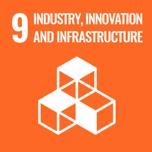

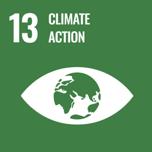
Decent work and economic growth
A sub-target of the UN Sustainable Development Agenda: Achieve higher levels of economic productivity through diversification, technological upgrading and innovation, including through a focus on high value added and laborintensive sectors.
Our objectives
Create profitable long-term business growth, enabling local and regional employment and an equal, balanced life.
Metrics
Number of employees, solvency.


Sustainable industry
A sub-target of the UN Sustainable Development Agenda for 2030: Upgrade infrastructure and retrofit industries to make them sustainable, with increased resource-use efficiency and greater adoption of clean and environmentally sound technologies and industrial processes, with all countries taking action in accordance with their respective capabilities.
Our objectives
Lead the way in the areas of sustainability and planetary resilience. Supply the world’s lowest emission aluminium profiles, with or without surface treatment.
Metrics
Carbon neutrality for own production and internal logistics in 2025. EPD emission value.
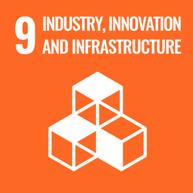

Local prosperity
A sub-target of the UN Sustainable Development Agenda: Support positive economic, social and environmental links between urban, peri-urban and rural areas by strengthening national and regional development planning. Our objectives
Act as a creator and contributor to local prosperity. Promote employment and cooperation not only in our own region but also on a wider regional, national and European scale.
Metrics
Tax footprint, effectiveness in selected networks.


The centre of Alajärvi.
Photo: City of Alajärvi
Climate action
A sub-target of the UN Sustainable Development Agenda: Integrate climate change measures into national policies, strategies and planning.
Our objectives
Lead by example in the fight against climate change through our own planetary resilience programme and influence the creation, design and implementation of climate-positive strategies at local, national and European level.
Metrics
Carbon neutrality for own production and internal logistics in 2025. EPD emission value. Effectiveness in selected networks.


Reipakanpuro in Vimpeli.
Photo: Tapio Niemi

Responsibility guides our decisions
Responsibility is the foundation of our family-owned company.
We take care of people, the environment, and the region we operate in. For us, sustainable growth means more than quarterly results. It’s a commitment to long-term development that ensures the wellbeing of both our business and the surrounding community. Our goal is to be a profitable and evolving company, but not at any cost. Responsibility guides our decisions today and in the future.
Collaboration and partnership are key values for us. We operate with openness and long-term commitment with our customers, our employees, and the local economy. We believe that success is built together. Every responsible choice helps to build a better tomorrow – for all of us.
Marko Orpana Managing Director

Staff structure
Average age of workers
43 years
258 Staff
75 Officials
183 Employees
*Based on data from the pension provider’s database.

Women
Men

Planet. People. Profile.
At the heart of our journey are people – all of us at Alu. Together, we explore new ideas and look for the smartest ways to do things, now and in the future. We try, we learn, we grow –and sometimes we make mistakes. But we’re always eager to move forward.
We exist now and in the future thanks to skilled, enthusiastic, and motivated individuals. They are the ones we invest in!
Jenni Hautakangas, Human Resources Manager
Employee satisfaction
We conduct a comprehensive annual employee satisfaction survey, the results of which are reported at the level of the whole organisation. The survey helps us understand the views of all our employees and identify areas where we can improve.
Our survey focuses on the following areas:
• Employee engagement (eNPS)
• Work capacity
• Stress level
• Response rate and number of respondents
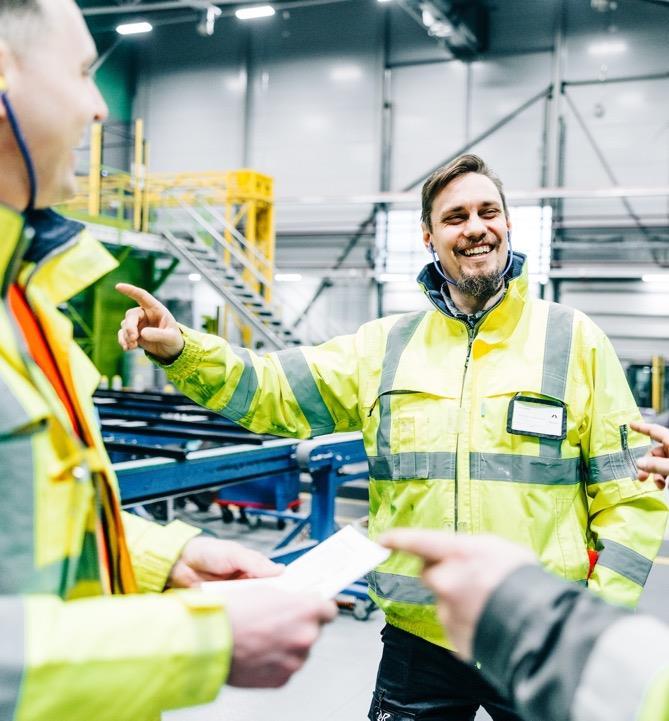
The survey also explores the following areas and their development needs:
• Personal performance
• Functionality of the work community
• Management
• Knowledge and skills development
• Capacity and resources
We use these indicators to ensure that our staff are happy, motivated, and able to achieve their best.
We want to maintain a working community where our employees feel safe and enjoy their work.

Employee satisfaction
The response rate was 71% (189 respondents). The average score for all questions was 3.45 (scale 1–5).
3.76
Average score
The average score of all likert responses was 3.76

Distribution of the average score
25 %
Need for development
25 % of respondents indicated a need for development. 75 % of respondents stated that they are satisfied with the current situation.
Employee satisfaction visualised
Promoters % - Detractors %
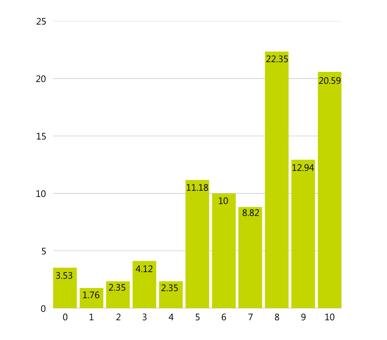


Highly competent staff
Ensuring competence is important, because a smooth everyday life in the work community is a guarantee for high customer satisfaction, security of supply, and occupational safety.
The key to maintaining and developing competences is to identify the critical competence requirements for different tasks. For each of the competences identified, training material will be developed and used to deliver the training.
The development of competences is also verified, registered, and assessed for its effectiveness. The aforementioned components are used to draw up a training plan at individual, team, unit and, ultimately, company level.

Hours spent on training in 2024
1,980 hours
Examples of statutory training include:
Hot work safety training First aid courses LPG Supervisor Training Hazardous chemical safety training for managers and supervisors
We have also received training in the following areas
▪ Team leadership and management
▪ Green Belt training
▪ New systems ▪ Machine safety ▪ Strategy work
Responsibility
Safety
Quality and the environment
Communication
Safety at work
We’ve made it as easy as possible to report safety observations, and everyone can follow the progress of corrective actions. Employees have the opportunity to contribute and share their improvement ideas.
Extensive machine risk assessments are underway, and production lines are being made safer. Our personnel are engaged and involved through continuous safety training focused on our own processes. Lasting change in safety culture comes from continuing and reinforcing good practices, training, and improving the work environment by staying committed to what has been agreed.
The idea of zero accidents may sound distant, but with commitment and continuous development of the work environment, it is entirely achievable. Our record for accident-free days is 479. In the end, attitude makes the difference, and it takes the involvement of the whole community. We work toward this goal every single day.
Sanna Moilanen EHS Coordinator

LTIF – Lost Time Injury
Frequency
The LTIF rate in the graph is the so-called injury frequency rate. It indicates the ratio of accidents to hours worked. The ratio is calculated per million hours worked. Mäkelä Alu’s injury frequency target is set to 0. The graph shows great progress from 2014 to today. In 2024, the injury frequency rate was 27.7. The implementation of agreed safety practices is monitored on a weekly basis.
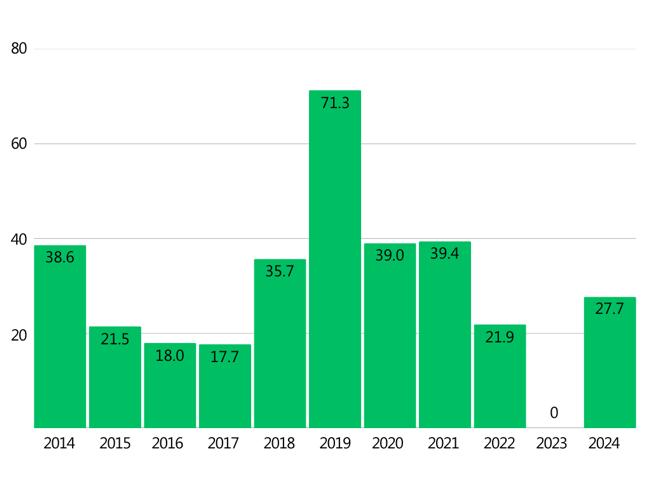
Comprehensive occupational health care services and early intervention
Staff have access to comprehensive occupational health care services, which include not only statutory preventive and capacity-building activities, but also extensive medical care. Cooperation with occupational health care services is active, and we aim to intervene early in cases that threaten the staff’s ability to work.
In cooperation with occupational health care services, we have developed an early support model, which ensures that any potential threats to work, safety or wellbeing at work are addressed at a sufficiently early stage.

Insurance and prevention
Occupational accident insurance provides workers with good social security cover in the event of an accident during working hours. In addition to the working time insurance, all our employees have a leisure time accident insurance taken out by Mäkelä Alu. Leisure time accident insurance is valid anytime, anywhere, and guarantees quick access to treatment in the event of an accident.
Work ergonomics is developed on the basis of needs from the units and ideas for improvement from follow-up visits by the occupational physiotherapist. We are also actively seeking other solutions and equipment to reduce workload, for example Exoskeletons have been purchased for all relevant units.

We use local agreements and take care of everyone’s wellbeing
We believe in working together and try to agree on things locally. We actively cooperate with health and safety and trust organizations, which provide opportunities to influence and participate in the development of our shared workplace.
Reconciling everyday life and work can be challenging in shift work, and looking after one’s own health and wellbeing is a big part of the job. That is something everyone can influence.

Benefits and support for wellbeing
We encourage our employees to take care of their wellbeing. We support them by offering the Smartum exercise benefit and access to various sports sessions. We also provide tickets to different events and organise shared wellbeing days with a sports theme. Recreational activities are coordinated by our wellbeing committee.
All staff have access to a flexible working hours agreement, which makes it easier to balance work and everyday life. The staff work in hybrid working models, defined by function, which allow for locationindependent work according to job tasks.

As part of our wellbeing day, we played Finnish baseball at Kitro Stadium in Alajärvi.
Reward fund
Our reward fund is based on the Finnish Personnel Funds Act and is used to manage and invest bonuses paid by Mäkelä Alu Oy. The fund offers employees a more taxefficient way to receive rewards compared to bonuses paid directly as salary. All employees are members of the fund, but actual investment in the fund is voluntary for each individual. Performance- and targetbased bonuses as well as profit-sharing payments can be received either as salary or invested in the fund.

Employee story: MAIJA

Joy at work in the packing department
Maija Jylhä started working at Mäkelä Alu around 18 years ago in the packing department. She has occasionally helped out in other departments too, but still works as a packer. Maija made the leap into the aluminium industry from a completely different field – the clothing industry.
Maija is known for her excellent teamwork and positive spirit. She believes it’s important to maintain a good working atmosphere and a strong work ethic.
“If there’s no packing to do, I’ll always find something else –cleaning or tidying up. Especially during morning or night shifts, when you might feel tired, it helps to stay active. Maybe people think that if this old granny is working hard, they can’t just sit around either,” she laughs.
Maija will soon retire.
“Mäkelä Alu has been a good and stable employer. I’m looking forward to retirement, but I also feel a little nervous about my last working day. It’s hard to leave such a close-knit and friendly work community.”
Employee story: ARTTU
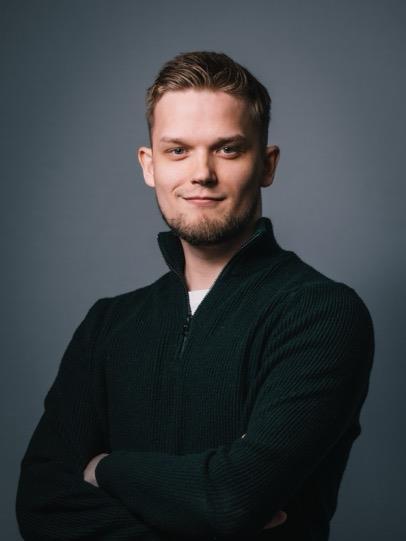
From summer jobs to a career in sales
Arttu Korkea-aho works in sales for the Finnish market. He’s a secondgeneration Alu employee and holds a degree in business administration.
“I first joined Mäkelä Alu in 2016 for a six-week internship in order processing. I then spent the following couple of summers mostly entering orders,” he recalls.
As a sales representative, Arttu’s responsibilities include managing customer relationships, preparing quotations, negotiating contracts, and attending meetings.
“What I find most interesting in customer work is meeting people and interacting with them, offering solutions, the variety of tasks, and the opportunity to keep learning,” he says.
“The best things about the job are its versatility, the freedom it offers, the great team I work with, and the feeling of being part of something bigger.
Mäkelä Alu is a great workplace with excellent conditions, such as flexible hours and the possibility to work remotely. These things make work enjoyable – not to mention the amazing colleagues!”
We support the local community
Throughout our history, we have always been committed to supporting the community around us.
We participate in community activities:
▪ By providing financial support to sports clubs and individual athletes in a wide range of sports. Our support focuses on recreational opportunities for children and young people in our areas of activity, but also for athletes who are progressing in their professional careers.
▪ By supporting families with children in need in our region through annual collections.
We also participate in the activities of our village community and joint projects in Alajärvi, Luoma-aho.
The beginner-level synchronized skating team RiverStars from Seinäjoki Figure Skating Club..
We also sponsor Alajärven Ankkurit’s volleyball team. In the photo: the B-girls’ team. Picture: Elias Murto
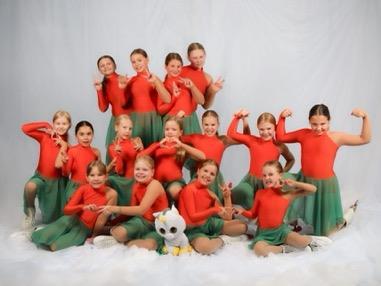

Our subcontactor manager Jouni Peltomäki represented us in a double role at the July home game. On the right: sales director Mika Korkea-aho. Alajärven Ankkurit’s 2024 sponsored player: Juho Ihamäki.




43 Carbon neutral in 2025
44 RRF projects
47 The world’s lowest-emission aluminium profile 48 Recycled-profile AluPlanet®
EPD declarations
Award-winning, carbon neutral anodising
Use of energy
Waste management and emissions to soil
Water bodies and water consumption

Picture: Tapio Niemi
Responsibility means actions
In 2024, we once again took significant steps toward carbon neutrality and stayed on track with our goals. Alongside reducing emissions, we focused on promoting biodiversity, using resources wisely, and enhancing material circulation. We looked after our people, strengthened our safety culture, supported wellbeing, and created space for learning and growth — without compromising on quality. On the administrative side, we clarified structures, sharpened our risk management, and enhanced responsibility within our supply chain. For us, responsibility is a holistic approach where the environment, people, and a commitment to quality go hand in hand. This gives us a strong foundation to build on.
Päivi Venesoja EHSQ Manager

Carbon neutrality target for 2025
We aim to be carbon neutral by the end of 2025 in our own production and internal logistics.
In 2022, we launched a new development project that will promote our efforts to reduce emissions, combat climate change, and increase energy efficiency. Overall, we will significantly reduce the use of LPG, for example by electrifying production and increasing waste heat recovery.
The total budget of the project is around 10 million euros.
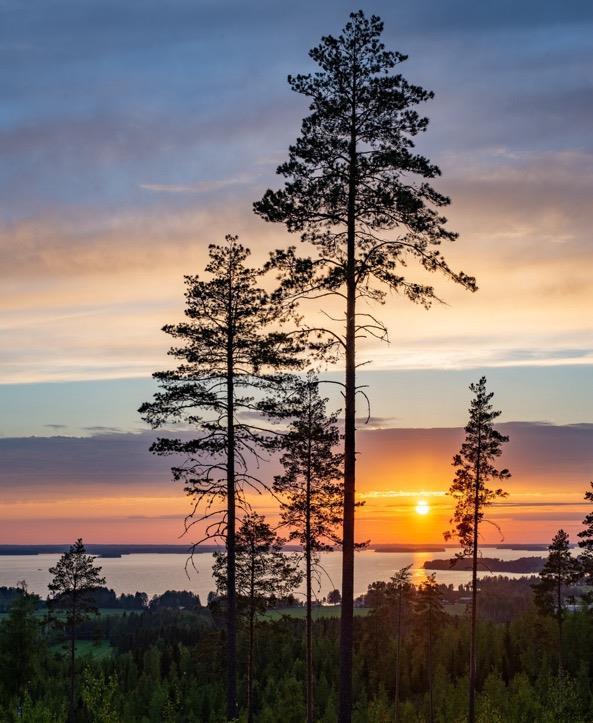
Lake Lappajärvi, seen from Lakeaharju.
Photo: Tapio Niemi
Energy investment support for carbon neutrality projects
The projects will reduce our carbon dioxide emissions by 2,800 tonnes per year. The projects are supported by the energy investment fund (RFF) of the Ministry of Economic Affairs and Employment. The aid covers around 30 % of the project costs: 2.85 million euros.
We are one of the six companies that received aid in the first round. In its own way, this tells us that we are doing important things, on a significant scale, and that we are leading the way towards a sustainable future at national level.

Case: Billet heating system at P3
At Press Line 3, the billet heating system was upgraded by replacing the liquefied gas-fired equipment with a modern, electric-powered solution. The project included a new resistance furnace and induction furnace for billet heating, as well as a new billet table and saw.
The modernisation of Press Line 3 is part of a broader investment programme aimed at reducing CO2 emissions from our own production. The project received energy investment support (RRF) from the Ministry of Economic Affairs and Employment of Finland. Thanks to this solution, our annual CO2 emissions will be reduced by 900 tonnes.


Case: Heat recovery projects
In 2024, we carried out several projects to improve our energy efficiency and replace fossil energy with renewable sources.
Heat recovery at the foundry
Waste heat from the Luoma-aho foundry is now recovered and used in the paint shops. Process water is heated without liquefied gas. Annual emission reduction: 290 tonnes.
Heat recovery at Voikkaa
Waste heat from production processes is recovered for use in the paint shop. Process water is heated without natural gas. Annual emission reduction: 204 tonnes.
Electricity storage and new substation
We have improved the electrical infrastructure of our factory site to enable electrification projects such as the new billet heating furnaces on Press Line 3.

These projects are part of a broader development programme aimed at reducing CO2 emissions from our own production.


The world’s lowest emission aluminium profiles
The carbon footprint of our operations and the related reduction measures are not new to us.
We have been working hard to reduce our carbon emissions for a couple of decades.
We have been doing our own emissions calculations since 2005. They have contributed to guiding our actions, including our choice of suppliers.
Since 2005, we have reduced our CO2 emissions (from gate to customer gate) by 51 % per tonne of aluminium produced!
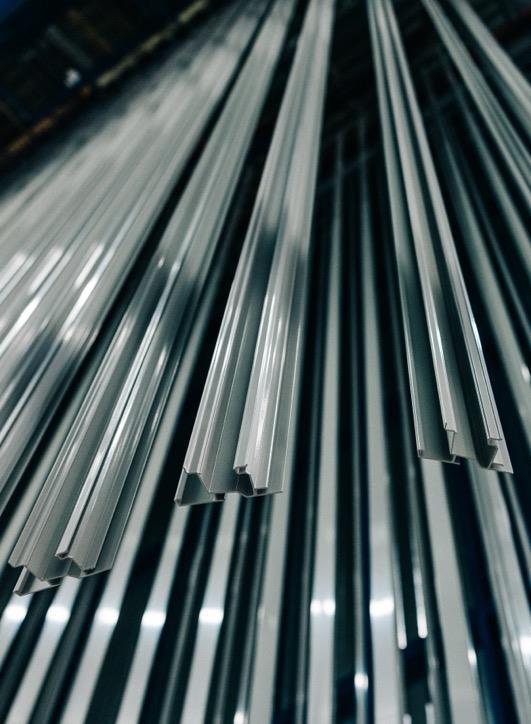
AluPlanet®: Low-carbon aluminiumprofiles
AluPlanet® is designed to meet sustainability requirements and support planetary durability.
AluPlanet® Basic, emissions 2.04 tn CO2e/t
– A recycled, low-carbon and untreated aluminium profile that combines quality and environmental responsibility.
AluPlanet® Paint, emissions 2.59 tn CO2e/t
– A powder-coated aluminium profile that offers a durable and stylish finish with minimal emissions.
AluPlanet® Anod, emissions 2.24 tn CO2e/t
– An anodised aluminium profile that is produced energyefficiently with environmental considerations.
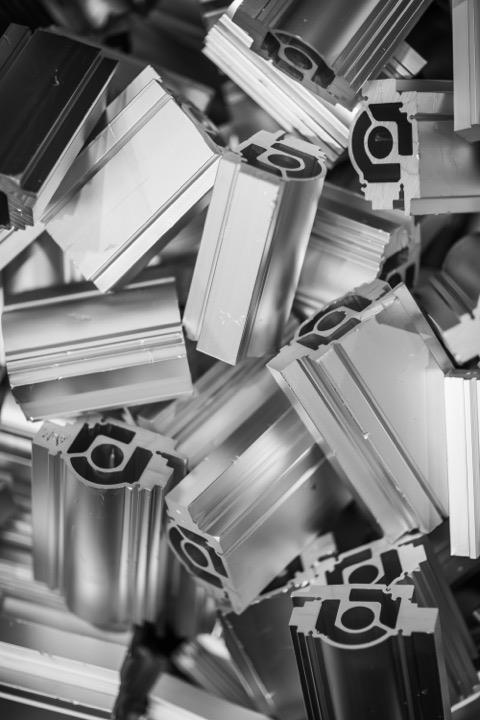
Origin of recycled aluminium
We source recycled aluminium from process scrap generated in our own production as well as from aluminium scrap returned by further processing companies and customers. This scrap is remelted into new billets in our own foundry.
We believe that reusing the waste generated in our own processes as raw material is a sustainable way to manufacture recycled aluminium profiles. Minimising production waste and making full use of all possible scrap in line with the principles of the circular economy is important to us.
Sourcing recycled aluminium generates very few transport emissions, as the material is either handled within our own production site, collected from nearby further processing companies, or transported alongside existing deliveries.
We are continuously developing and seeking new solutions for utilising recycled aluminium.
Environmental Product Declarations
(EPD) and eco-label
EPDs are available for both recycled billets and primary aluminium profiles with different surface treatments. Profiles made from recycled billets are accepted for Nordic Swan Ecolabel products and applications.
The declarations can be found on our website at makelaalu.fi/en/company/materialbank/

Case: Carbon neutral anodizing
The complete modernisation of the energy system in our anodizing plant was almost completed in 2023. Energy efficiency is already top class and 100% carbon neutrality is just a small step away.
The plant’s annual consumption of around 300 tonnes of LPG has fallen to less than a tenth of that. At the same time, CO2 emissions fell dramatically: around 800 tonnes per year. LPG consumption was pushed down to the point where it will be possible to switch from gas energy to biogas within one to two years. With the switch to biogas, the anodizing plant’s energy system will become completely carbon neutral.
The technical implementation of the new energy system is based on a system built around heat pumps and heat recovery. The project has received funding from Business Finland.
Case: Carbonneutral anodising
Our anodising plant’s renewed energy system has been recognised with both international and national awards
Energy genius 2024
Granted by the Finnish Energy Authority, the Ministry Economic Affairs and Employment, and Motiva, this recognises impactful and distinctive energy efficiency actions that promote responsible energy use.
Net-Zero Industries Award
National winner in the Outstanding Projects category
This international competition recognises and rewards major innovations that reduce industrial CO2 emissions. The award highlights projects that transform energyintensive industries and make a significant contribution to reducing greenhouse gas emissions.


In the photo: staff from the anodising plant.

Energy use
All the electricity we use at Luoma-aho is 100% green.
We have signed a voluntary Energy Efficiency Agreement, where we pledge to increase energy efficiency in all our operations and investments.


Waste management and circular economy
Our environmental work also covers emissions to water and soil.
▪ In 2024, only 1.09% of our total waste and by-product volume was sent to landfill. All other waste and byproducts were utilised either in further processing or as energy waste.
▪ We are constantly developing circular economy opportunities and making the most of related business models.
▪ With our own paint stripping line, we can remove paint from aluminium profiles. This enables us to repaint the profiles if necessary or to supply the profiles to our own foundry as raw material.
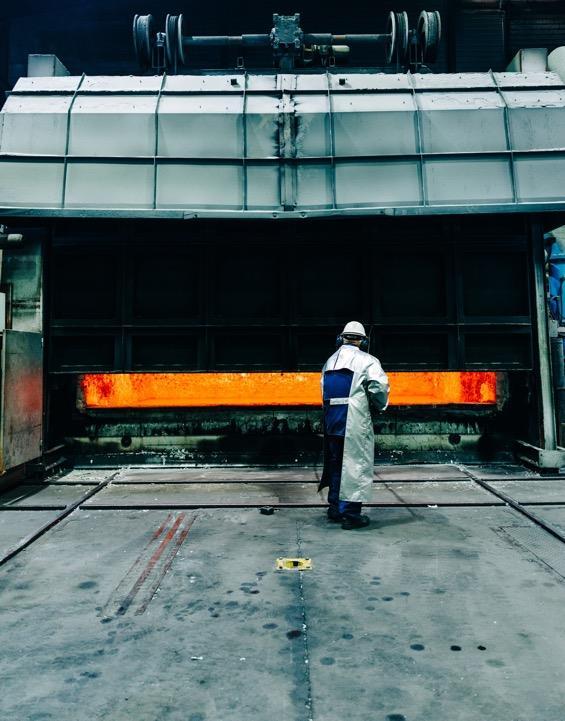
ISO 14001 guides our activities
The operations of our Luoma-aho and Voikkaa factories are guided by the certified ISO 14001 environmental management system.
All our products also meet the requirements of the European REACH Regulation and conflict minerals requirements.
Handling of chemicals
The chemicals we use are procured according to an agreed process. The procurement criteria are primarily based on less hazardous and more environmentally friendly chemicals.
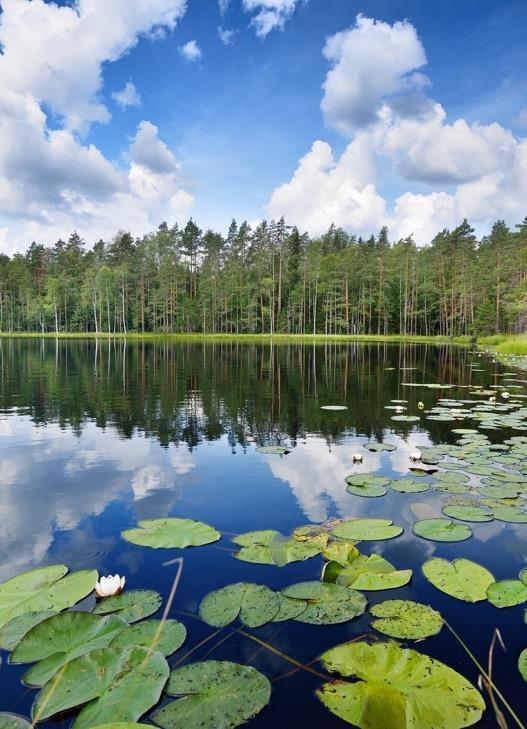
Case: Wildflower meadow
We have started creating a wildflower meadow of about half a hectare on the edge of a field behind our anodising plant.
The field brings joy to us, but more importantly, it provides food for pollinators. Even small areas and actions matter when it comes to preserving biodiversity.
We received valuable help in establishing the field from nature and environmental studies students and teachers at regional vocational institute.
Before wildflowers can thrive, the soil must first be depleted over a couple of summers. This is done by mowing the area several times during the summer and removing the cuttings from the field.
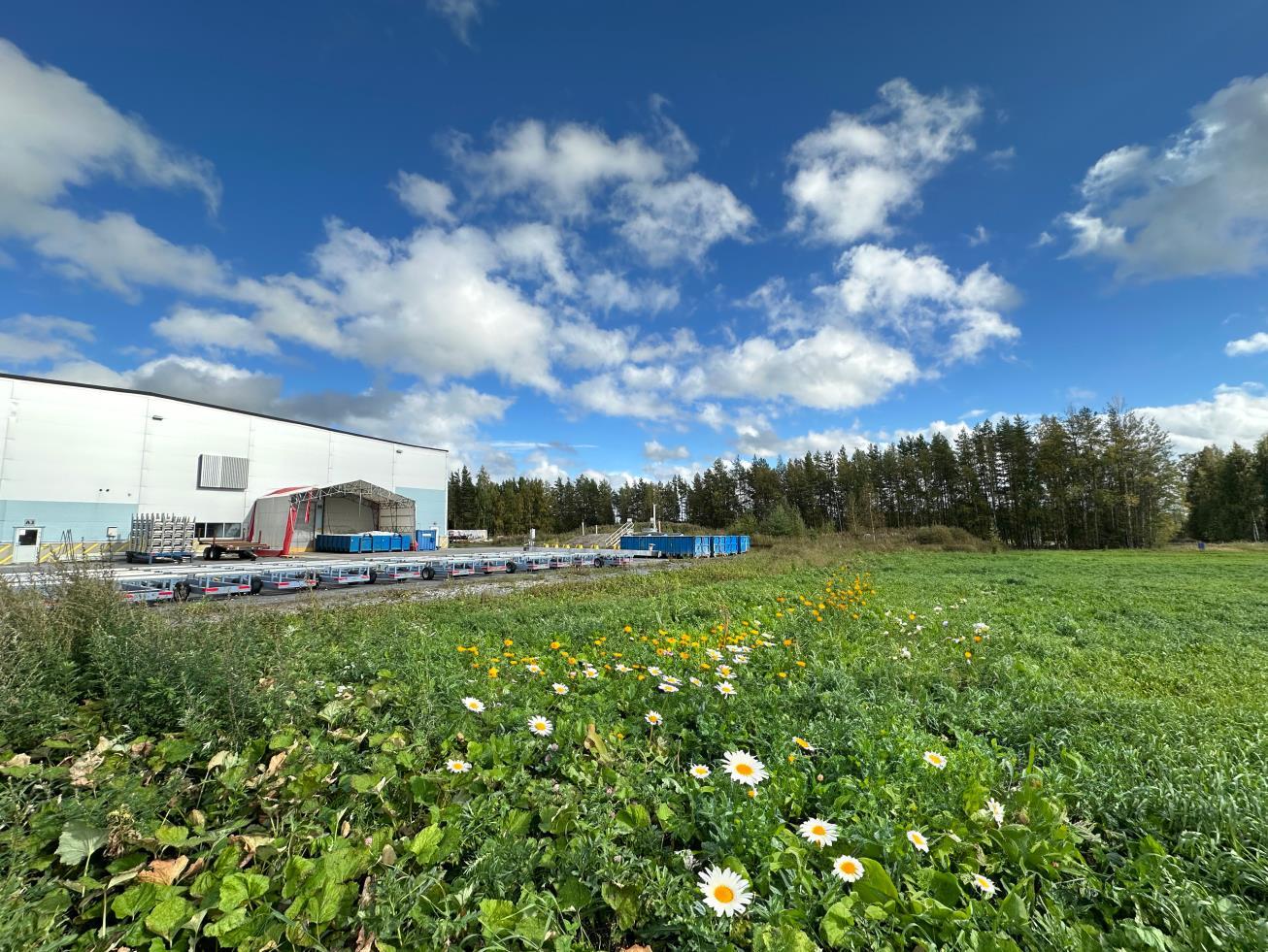
The future wildflower meadow before the final summer mowing. The daisies in the image are AI-generated.
Water bodies and water consumption
In addition to overall water consumption, we continuously monitor water consumption at different stages of our processes. We are able to carry out monitoring and general surveillance in real time through remote and camera monitoring.
An alarm is automatically triggered in the event of a potential waste water treatment incident. Wastewater concentrations must remain within the limits of our environmental permit.
For water body monitoring, we participate in the joint monitoring of the Ähtävänjoki, Kruunupyynjoki and Purmonjoki rivers at our own sampling sites.

The catchment area of the Poikkijoki River is part of the Ähtävänjoki watercourse.
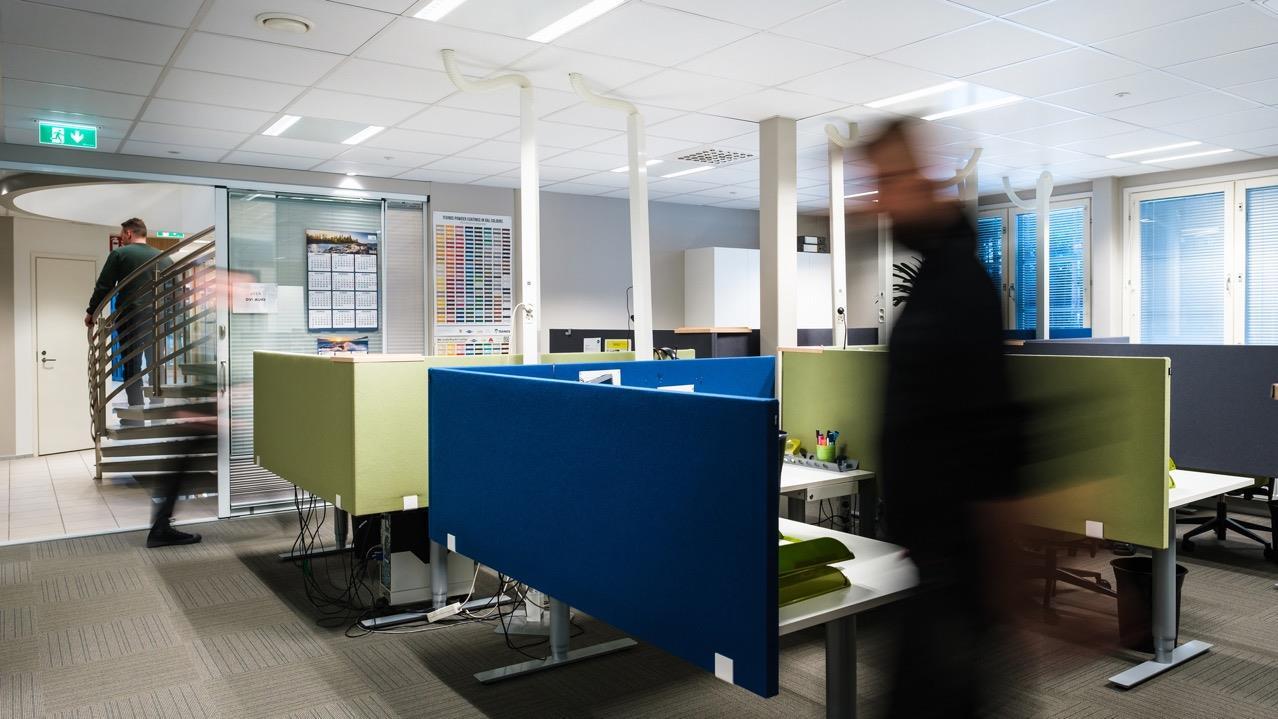
Our next step is carbon negativity
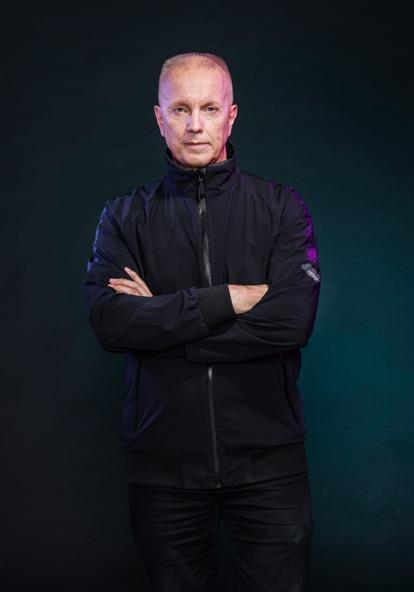
With record-breaking warm years behind us, we are entering a new era of the planetary sustainability transition: the era of adaptation. Permanent changes in temperatures and extreme weather events are challenging our food systems, construction, tourism, and even the global distribution of operations.
The time is approaching when binding directives will drive the clean transition with strict deadlines, and operations that burden the planet will no longer be allowed. At Mäkelä Alu, we are ready not only for this change, but to lead it. We reached our carbon neutrality goal, one that seemed impossible to many, already in February 2025.
But we are not stopping, nor even slowing down. Our new ambition is to become carbon negative on a scale the industry has yet to imagine. We believe in bold breakthroughs, because new doors won’t open with old keys.
Ilkka Halava Futurist Member of the Board of Directors
Management and control systems
(Corporate Governance)
General Meeting
The Board of Directors convenes the General Meeting of Shareholders in accordance with the Companies Act. The meeting deals with matters in accordance with the Articles of Association, the Limited Liability Companies Act, and the proposal of the Board of Directors.
Board of Directors
The Board of Directors is responsible for the company’s activities. The duties and responsibilities of the Board of Directors are determined by the Companies Act. The Board meets 11 times a year and holds additional meetings as needed.
Chairman of the Board
The general role of the Chairman of the Board of Directors is to lead the work of the Board of Directors and to carry out separately agreed tasks.
Steering Group
For planning, managing and supervising operational matters, the Managing Director is assisted by a Steering Group. The Steering Group meets for a brief situation review every week, and longer meetings are held 11 times a year.
Managing Director
The duties and responsibilities of the Managing Director are laid down in the Companies Act. The Managing Director manages the day-to-day administration of the company in accordance with the instructions and orders issued by the Board of Directors.
In accordance with the Cooperation Act, a cooperation meeting is organized four times a year to review the situation of the company with staff representatives.
In addition, twice a month we hold a meetings between the employee representatives in the company’s administration, the Managing Director, the Human Resources Manager, and the Production Director.
Trust Our shareholder values
Persistence
Harmony
Curiosity
Mäkelä Alu’s operating model
In addition to our strategy, values and planetary sustainability objectives, we are guided by a set of agreed guidelines and practices and the ethical principles of our Code of Conduct.
These principles help everyone understand how to act responsibly in their own job, in accordance with good workplace culture.
Our ethical principles also help guide our cooperation with suppliers, as we insist on the same principles throughout the supply chain.

Sensitive issues and suspected misconduct can be reported anonymously to our WhistleBlow channel for further action.
In addition, our IT department constantly manages information security risks in all our operations to ensure the safety of personnel and customer data.
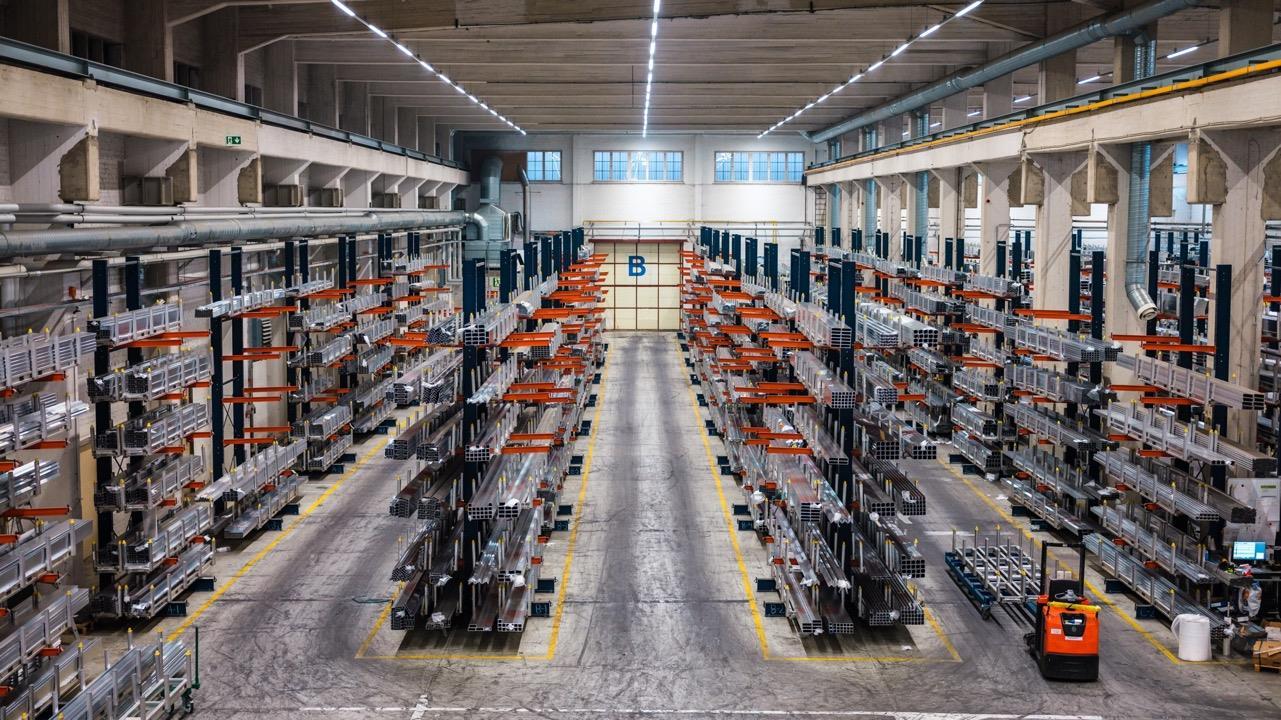
Our Code of Conduct is available at makelaalu.fi/en/company/materialbank/
Principles for the selection of suppliers
An essential part of our sourcing strategy is to know our supply chains and choose greener options for raw materials, transport, and packaging.
We want to know where our raw materials come from, what kind of labour is used to produce them, and what impact they have on the environment. We want our suppliers to recognise our environmental goals and be willing to develop their own operations and technology in a more environmentally sustainable way.
The core value of partnership is trust, or “doing things as agreed”.
All our suppliers comply with our Code of Conduct.
Our own sustainability profile in IntegrityNext
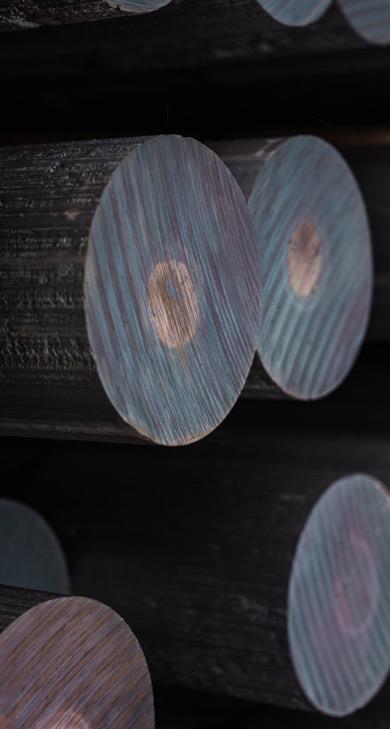

Risk management
Risk management is based on a comprehensive risk assessment. The assessment prepared by management weighs up the strategic risks, financial risks, operational risks, and potential risks of damage.
A comprehensive risk assessment includes:
▪ Systematically identifying the risks to the company and identifying opportunities to improve risk and safety awareness
▪ Providing management with an overview of the threats to operations
▪ Supporting strategy and risk management, leadership, and sound decision-making.
Risk management is continuous work
The Board of Directors discusses the assessment of the company’s risks made by the management and takes all possible measures to ensure that the company’s risks remain within its carrying capacity. The Board also monitors changes in risks. The comprehensive risk assessment is regularly updated. All insurable risks are adequately covered.


Auditing
The company’s accounts and administration are audited by independent auditors elected by the General Meeting, whose opinion is discussed by the Board of Directors.
